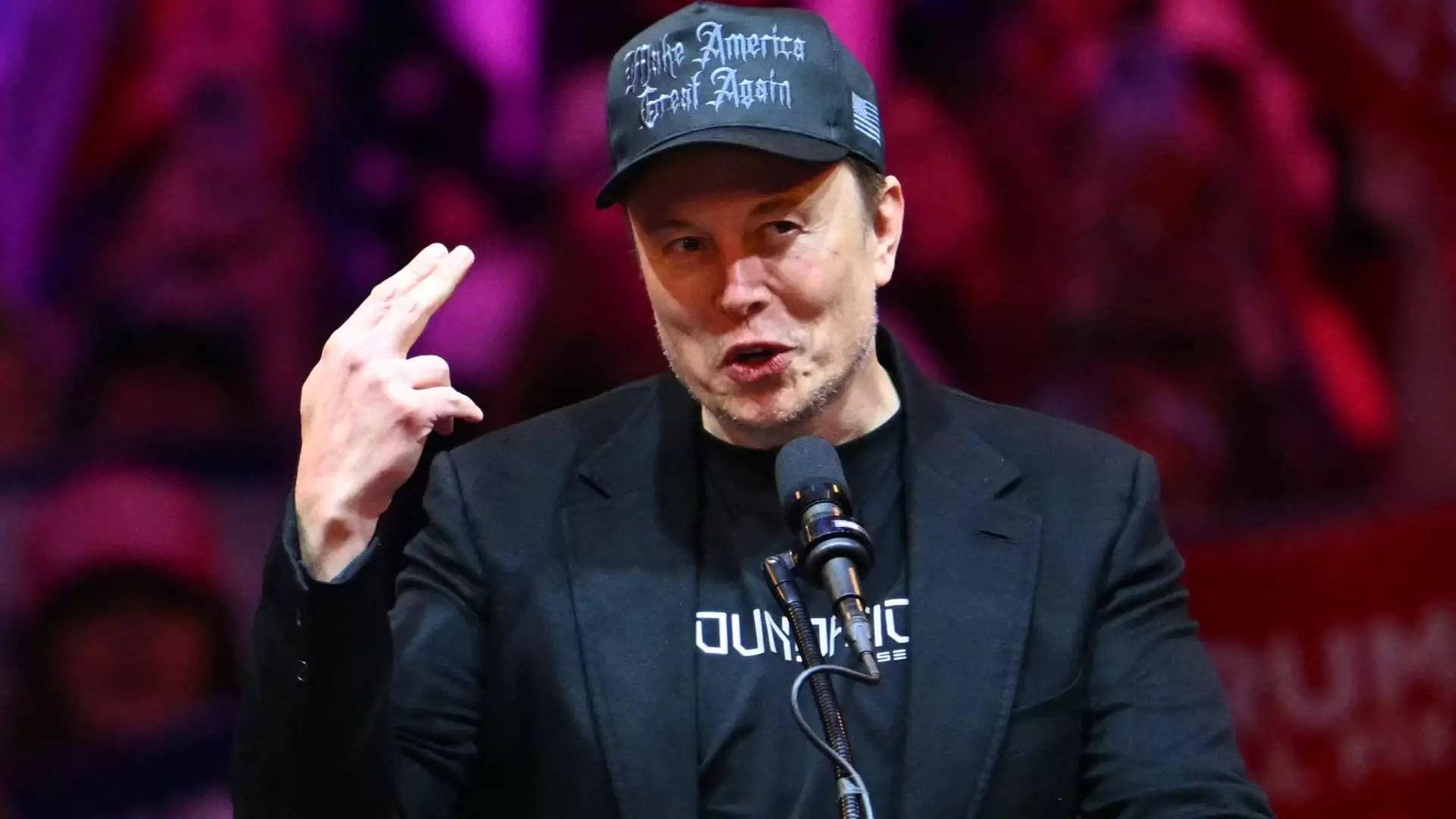The ongoing conversation surrounding former President Donald Trump’s economic strategies has taken a new turn, prompting significant scrutiny from various economic heavyweights. Notably, prominent supporters such as Tesla CEO Elon Musk have begun to align their views with economists who argue that Trump’s proposed policies could lead to increased prices for consumers. Despite this overwhelming concern, Trump’s allies contend that these short-term setbacks may yield long-term benefits. This juxtaposition poses an intriguing economic debate, reflecting on the moral implications of prioritizing potential future gains over immediate consumer comfort.
Recent statements from Musk reveal a hesitance to dismiss the warnings from independent economists, Wall Street analysts, and researchers about the repercussions of Trump’s second-term economic agenda. Observers emphasize that the outlined plans, particularly concerning universal tariffs—especially on Chinese goods—could exacerbate inflation and amplify the federal deficit. Musk’s acknowledgment of an impending economic “overreaction” encapsulates the concerns that many hold regarding the volatility in markets, which could tumble initially before potentially stabilizing later.
Kamala Harris, serving as the Democratic nominee, has capitalized on the chaos that might ensue, coining the phrase “Trump’s sales tax” to underscore the inevitable price hikes consumers may face. This rhetoric serves to advocate for an alternative economic narrative, one that seeks to portray the current tactics as reckless and detrimental to public welfare.
Even Trump’s closest allies, such as Cantor Fitzgerald CEO Howard Lutnick, are candid about the implications of imposing tariffs on foreign imports. In recent remarks, Lutnick expressed that raising tariffs would do exactly what critics fear: elevate prices, making products more expensive for consumers almost immediately. His assertion that consumers would need to switch to domestic alternatives only applies when those alternatives are available domestically. For numerous products that the U.S. does not manufacture, this could spell trouble. The stark truth is that consumers might find themselves grappling with higher costs without viable local substitutes.
Furthermore, Trump’s running mate, Senator JD Vance from Ohio, has joined the chorus acknowledging the immediate pain consumers might endure under these policies. However, Vance argues that although individuals may face increased costs initially, the corresponding rise in wages would offset these losses. The projected theory presupposes that the benefits of wage increases would counterbalance the financial burden placed upon consumers—a correlation that remains to be substantiated in practical terms.
Trump’s campaign appears to be shifting strategy in response to growing criticism, illustrating a willingness to embrace this notion of short-term pain for presumed long-term benefits. By framing the discussion in this way, Trump allies aim to reposition the narrative as a strategic sacrifice necessary for achieving broader economic reform. Nonetheless, this tactic may not resonate positively with everyday Americans, who are often focused on immediate impacts rather than distant advantages.
The urgency of this economic climate cannot be overstated. As key players offer their perspectives, one must ask whether the public will accept the notion that enduring economic discomfort today could pave the way for a more prosperous future. The risk remains that by prioritizing future gains over current losses, the administration may inadvertently alienate key voter demographics who cannot afford to wait for economic promises to materialize.
As discourse around Trump’s economic proposals continues to evolve, the path forward remains fraught with uncertainty. While some influential voices endorse the idea of accepting short-term economic hardships to foster a potential long-term recovery, others remain skeptical. The central question looms: Will Americans accept this ideological gamble in hopes of a brighter economic future, or will the immediate repercussions of policy changes deter support? Only time will tell whether this gamble pays off, but as the nation navigates this intricate economic landscape, the importance of informed dialogue regarding these policies becomes increasingly evident.



Leave a Reply